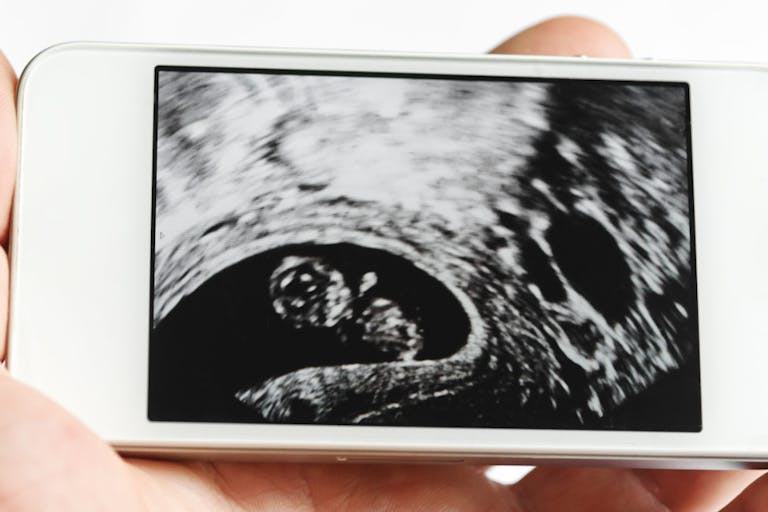
Decades after banning the death penalty, Canada kills inmates by 'assisted suicide'
Nancy Flanders
·
South Carolina woman believes pro-life law prevented her from getting miscarriage care
A South Carolina woman has said that a doctor used the state’s pro-life law as a reason not to provide her with a specific miscarriage treatment option after her preborn baby died at about six weeks.
Christine Glang told WYFF 4 that she had suffered a previous miscarriage and has one young daughter at home, and though her first miscarriage was completed on its own, the second was not. She and her husband had been happy to be pregnant again after welcoming their daughter, but sadly, she and her husband learned at their nine-week appointment that their baby had not survived.
“I found out my pregnancy [preborn baby] stopped growing at six weeks and was non-viable. I was devastated; we were so excited to be pregnant,” she said.

“I was already carrying dead fetal tissue inside of me for three weeks, and my body was not passing the pregnancy on its own,” she added. “My pregnancy was non-viable; I should qualify [for treatment].”
The state defines abortion as “the act of using or prescribing any instrument, medicine, drug, or any other substance, device, or means with the intent to terminate the clinically diagnosable pregnancy of a woman with knowledge that the termination by those means will, with reasonable likelihood, cause the death of the unborn child. Such use, prescription, or means is not an abortion if done with the intent to save the life or preserve the health of the unborn child, or to remove a dead unborn baby.”
Under the law, miscarriage treatment is not prohibited.
South Carolina’s Fetal Heartbeat and Protection from Abortion Act, which passed in 2023, states:
Abortions may not be performed in this state after a fetal heartbeat has been detected, with exceptions for medical emergencies, rape, incest, or fatal fetal anomalies…
However, Glang alleged, “My doctor said because of the bill, I was going to have to wait 11 days for a second ultrasound” before being able to undergo a D&C procedure to remove her deceased child and pregnancy tissue.
The D&C procedure is legal to use when a baby has died in the womb at any point up to 14 weeks, but in states with laws protecting preborn babies with a detectable heartbeat — like South Carolina — it is illegal to use on living preborn babies with the intent to kill them. It is unclear why the South Carolina doctor told Glang she must wait 11 days to undergo a second ultrasound before having the D&C if her baby had indeed died.
During a suction D&C, a powerful suction machine removes the baby and pregnancy tissues from the uterus. A medical professional then scrapes the uterine lining, which has the potential to cause damage to the uterus, with complications such as infection, excessive bleeding, uterine perforation, and scar tissue. For various reasons, possibly including these potential risks, a D&C is not usually the first recommended method for miscarriage treatment if a woman’s condition is otherwise stable and she does not have infection; medication to complete the process is often recommended over a D&C procedure when possible.
Miscarriages have the potential to take weeks to complete on their own.
“We’ve had a miscarriage,” said South Carolina Senator Josh Kimbrell, who helped write the law. “It’s a very emotional and personal experience.” He added, “And frankly, that doctor made a mistake.”
Kimbrell offered to write a letter to the Department of Health to ask it to clarify to every hospital system in the state that treatment for miscarriage is not an abortion.
Likewise, South Carolina Senator Rex Rice noted, “If there is a heartbeat, that is different… You know, there’s always something we can do to help. We need to have that discussion, though.”
According to WYFF4, Glang said that “after carrying dead tissue for so long, she couldn’t find a doctor nearby to help fast enough.” However, since the intra-uterine demise was discovered upon a routine ultrasound examination and was not scheduled due to any suspicion of problems or symptoms of infection, it is possible that the OB/GYNs Glang approached did not believe the situation warranted an emergency D&C.
Glang ultimately traveled to a (presumably close) Virginia facility for a D&C, claiming that she “knew the longer I waited I ran the risk of infection, sepsis, my future fertility, and even my life.” As Live Action News previously reported, OB/GYNs have explained that while “some women may choose to take a drug such as misoprostol for an early pregnancy loss… miscarriage is not an emergency when it is absent of signs that might indicate infection or hemorrhage. It’s because of this that the standard of care is a watch-and-wait approach to miscarriage, followed by a course of treatment if there is cause for concern.”
In addition, “pro-life laws do not prohibit miscarriage treatment, and miscarriage treatment by surgery or drug is not immediately necessary in most cases.”
Tell President Trump, RFK, Jr., Elon, and Vivek:
Stop killing America’s future. Defund Planned Parenthood NOW!
Live Action News is pro-life news and commentary from a pro-life perspective.
Contact editor@liveaction.org for questions, corrections, or if you are seeking permission to reprint any Live Action News content.
Guest Articles: To submit a guest article to Live Action News, email editor@liveaction.org with an attached Word document of 800-1000 words. Please also attach any photos relevant to your submission if applicable. If your submission is accepted for publication, you will be notified within three weeks. Guest articles are not compensated (see our Open License Agreement). Thank you for your interest in Live Action News!

Nancy Flanders
·
International
Nancy Flanders
·
Issues
Angeline Tan
·
Analysis
Cassy Cooke
·
Politics
Cassy Cooke
·
Analysis
Cassy Cooke
·
International
Nancy Flanders
·
Politics
Nancy Flanders
·
Pop Culture
Nancy Flanders
·
Politics
Nancy Flanders
·
Politics
Nancy Flanders
·